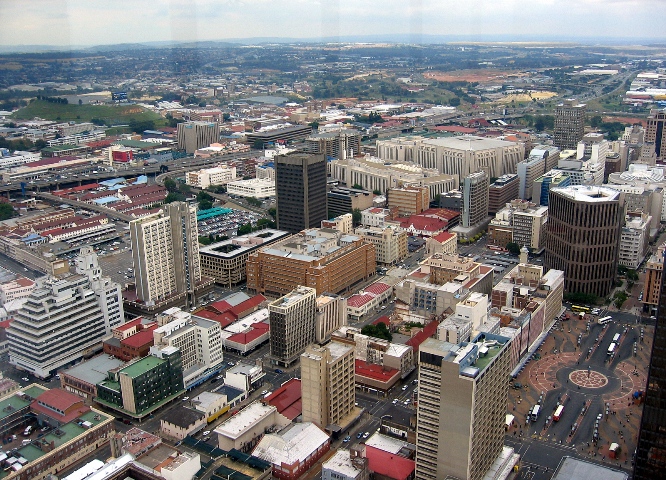Need to radically change urban spatial patterns to ensure equality: President Ramaphosa
The President said to accelerate spatial transformation, Cabinet resolved at its recent Lekgotla on the rapid release of well-located but under-utilized land to develop affordable mixed-income housing settlements.

- Country:
- South Africa
President Cyril Ramaphosa says there is a need to radically transform urban spatial planning to ensure that citizens, particularly the poor and the working class, live closer to places of work and amenities.
The President said this when he returned to the National Assembly to respond to oral questions from members of Parliament on Wednesday afternoon.
He said urban spatial patterns that South Africa inherited from the apartheid regime and which still persist today contribute to the reproduction of inequality and poverty.
This, he said, needs to change fundamentally because it is unacceptable that the working class and the poor in the country, who are overwhelmingly black, are located far from opportunities of work and amenities which, among other things, places enormous pressure on their family lives.
“…the progressive transformation of our urban spaces is not just about radically addressing social poverty and racial inequalities. We must make our cities generators of wealth and reservoirs of productivity and the only way we can do so is to make sure that our people live much closer to where they work and also do not spend too much money on transport.
“We need to eradicate the economic inefficiencies of transporting a workforce from dormitory townships into centers. The radical transformation of our urban spaces is therefore both a social and economic imperative,” he said.
The President said working parents leave home early every morning and return late after their children have gone to sleep.
He said the long commuting times impact disproportionately on the household income of the poor.
According to Stats SA, more than two-thirds of households in the country who are in the lowest income, spend more than 20 percent, and sometimes it goes up to 30 percent, of their monthly income per capita on public transport.
“Through instruments like spatial planning and land use management Act and the Integrated Urban Development Framework, we are approaching spatial planning guided by principles of social equity and economic efficiency.
“We are focussing on developing integrated human settlements that are located close to work and amenities rather than just meeting what you would call housing targets.
“At the same time, through a significant investment in the township economy, we are working to bring economic activity to where most of the people live,” he said.
The President said to accelerate spatial transformation, Cabinet resolved at its recent Lekgotla on the rapid release of well-located but under-utilized land to develop affordable mixed-income housing settlements.
“Much of this land is owned … by various departments, provincial governments and municipalities as well as state-owned enterprises. Some of this land is privately held for purely speculative purposes.
“We need in our view to use every inch of our country to enable people to live and those who want to farm to be able to farm.
“We have a responsibility which is imposed on us by the Constitution to ensure that all South Africans have a security of tenure, while extending title deeds to a greater number of households is a priority, we should also secure less expensive and less complicated forms of tenure for households in informal settlements, in rental arrangements and in areas of communal land tenure,” he said.
Government supports land restitution
Government supports land restitution and redistribution which will redress the sins of the past by allowing access to the land in a way that grows the economy, ensures food security, and increases agricultural production.
In order for the Bill to pass, the National Assembly, with a supporting vote of at least two-thirds of its members; and the National Council of Provinces, with a supporting vote of at least six provinces, must approve it.
The process has provoked many strong reactions, both in support and against the amendment. Certain groups and parties have also tried to use the process to fear monger.
South Africans are urged to be patient and trust the parliamentary processes to address land dispossession, rural development, and food security.
(With inputs from South African Government press release)
ALSO READ
Ben Dalton appointed new board Chair of Ngāpuhi Investment Fund
Moderating inflationary pressure, sustained momentum in manufacturing, services sectors should boost private investment: RBI Guv.
Mr. Kapil Bhatia felicitated with the prestigious Lifetime Achievement Award at the Hotel Investment Conference-South Asia (HICSA) 2024
RBI to allow investment, trading of Sovereign Green Bonds at IFSC, Gujarat
British PM Rishi Sunak unveils GBP 35 million investment in grassroots cricket to widen participation in schools










